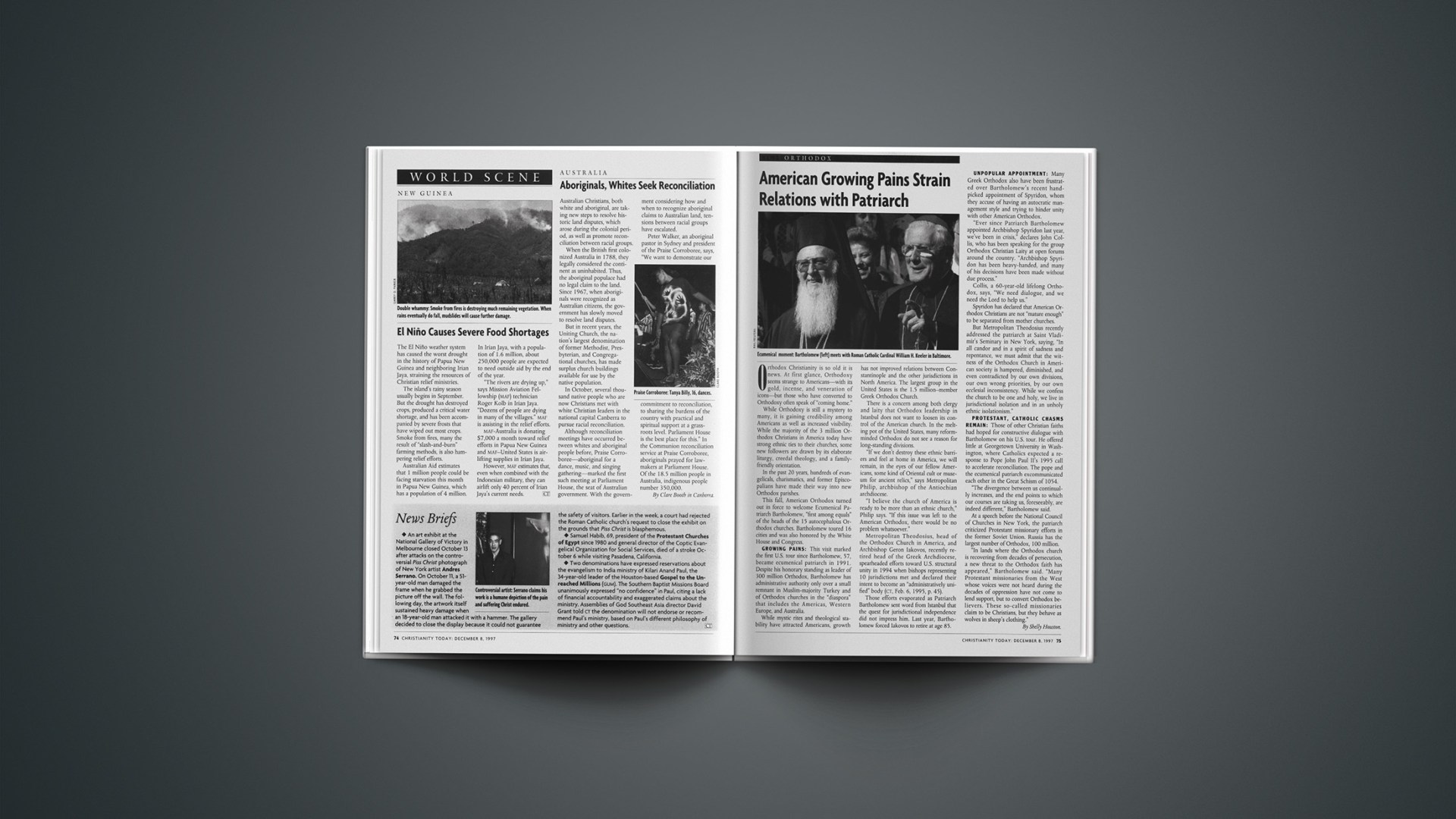Australian Christians, both white and aboriginal, are taking new steps to resolve historic land disputes, which arose during the colonial period, as well as promote reconciliation between racial groups.
When the British first colonized Australia in 1788, they legally considered the continent as uninhabited. Thus, the aboriginal populace had no legal claim to the land. Since 1967, when aboriginals were recognized as Australian citizens, the government has slowly moved to resolve land disputes.
But in recent years, the Uniting Church, the nation’s largest denomination of former Methodist, Presbyterian, and Congregational churches, has made surplus church buildings available for use by the native population.
In October, several thousand native people who are now Christians met with white Christian leaders in the national capital Canberra to pursue racial reconciliation.
Although reconciliation meetings have occurred between whites and aboriginal people before, Praise Corroboree—aboriginal for a dance, music, and singing gathering—marked the first such meeting at Parliament House, the seat of Australian government. With the government considering how and when to recognize aboriginal claims to Australian land, tensions between racial groups have escalated.
Peter Walker, an aboriginal pastor in Sydney and president of the Praise Corroboree, says, “We want to demonstrate our commitment to reconciliation, to sharing the burdens of the country with practical and spiritual support at a grassroots level. Parliament House is the best place for this.” In the Communion reconciliation service at Praise Corroboree, aboriginals prayed for lawmakers at Parliament House. Of the 18.5 million people in Australia, indigenous people number 350,000.
Copyright © 1997 Christianity Today. Click for reprint information.
December 8, 1997 Vol. 41, No. 14, Page 74









